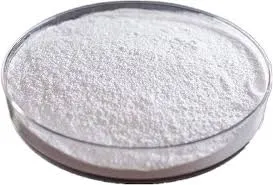
Oct . 31, 2024 20:22 Back to list
Hydroxyethyl Cellulose Powder for Enhanced Formulations and Applications in Various Industries
Hydroxyethyl Cellulose Powder An Overview
Hydroxyethyl cellulose (HEC) powder is a water-soluble, non-ionic cellulose ether derived from natural cellulose. Due to its unique properties, HEC has gained significant attention across various industries, including pharmaceuticals, cosmetics, food, and construction. This article provides an insight into the characteristics, applications, and benefits of hydroxyethyl cellulose powder.
Characteristics of Hydroxyethyl Cellulose Powder
HEC is characterized by its excellent rheological properties, which allow it to modify the viscosity and flow behavior of formulations. It appears as a white, free-flowing powder and is known for its ability to dissolve in both cold and hot water. As a derivative of cellulose, it is biodegradable and safe for the environment. Moreover, HEC is non-toxic and non-irritating, making it suitable for various applications where skin contact is anticipated.
Applications in Various Industries
1. Pharmaceuticals In the pharmaceutical industry, HEC is commonly used as a thickening agent and stabilizer. It is an essential component in the formulation of gels, creams, and ointments, aiding in controlled drug release. Its ability to form a gel-like consistency makes it ideal for topical products and enhances the efficacy of active ingredients.
2. Cosmetics and Personal Care Hydroxyethyl cellulose is widely recognized in cosmetics as a thickener and emulsifier. It improves the texture and stability of creams, lotions, and shampoos. Additionally, HEC enhances the spreadability of products on the skin, providing a luxurious feel while ensuring that they remain stable over time.
hydroxyethyl cellulose powder

3. Food Industry In the food sector, HEC serves as an additive that improves the texture and consistency of various products. It acts as a stabilizer, emulsifier, and thickening agent, enabling the preparation of sauces, dressings, and dairy products. HEC’s ability to retain moisture also contributes to the shelf life and quality of food items.
4. Construction HEC is utilized in construction materials such as cement, adhesives, and paints. It enhances the workability of mortars and plasters, allowing for easier application and better adhesion. Its water-retaining properties also help prevent premature drying, ensuring that construction materials set correctly.
Benefits of Hydroxyethyl Cellulose
The versatility of hydroxyethyl cellulose powder lies in its numerous benefits. It is chemically stable, making it resistant to degradation, and possesses exceptional film-forming properties. This characteristic is particularly beneficial in coatings and adhesives, where a durable, protective layer is required. Additionally, HEC's biocompatibility and safe profile make it a preferred choice in products designed for direct skin application.
Conclusion
In summary, hydroxyethyl cellulose powder is a multifunctional ingredient that has established its importance in numerous industries. Its unique properties, such as viscosity modification, stability enhancement, and safety, contribute to its widespread use in pharmaceutical, cosmetic, food, and construction applications. As industries continue to seek innovative solutions to improve product quality and performance, the demand for hydroxyethyl cellulose is likely to grow, solidifying its role as a vital component in modern formulations.
-
Unlocking the Benefits of HPMC Products: A Gateway to Versatile Applications
NewsAug.07,2025
-
Unleashing the Potential of HPMC Ashland: A Comprehensive Look
NewsAug.07,2025
-
Tile Bonding Cellulose: The Key to Superior Adhesion and Durability
NewsAug.07,2025
-
Hydroxypropyl Methylcellulose Powder: The Versatile Component in Modern Pharmaceuticals
NewsAug.07,2025
-
Hydroxyethyl Cellulose: The Versatile Solution for Various Industries
NewsAug.07,2025
-
Hydroxyethyl Cellulose (HEC): The Versatile Polymer for Various Applications
NewsAug.07,2025







